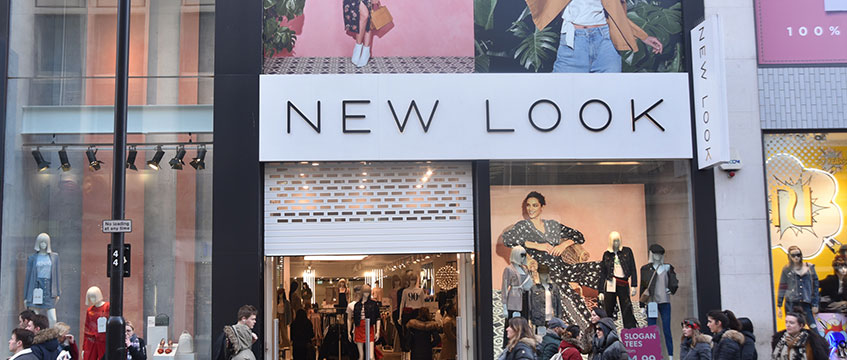New Look landlords dispute ‘fundamental switch’ of rent arrangements
The High Court challenge to high street retailer New Look’s restructuring arrangement got under way today, with lawyers for some of its landlords complaining it permanently changes the way the company pays rent.
Creditors voted in favour a company voluntary arrangement to help the stricken retailer in September, in a deal that rescued it from a pre-pack administration.
However, some of the landlords, including the owners of Manchester’s Trafford Centre and Edinburgh’s Fort Kinnaird retail park, are challenging the agreement, arguing that it is unfair.
The High Court challenge to high street retailer New Look’s restructuring arrangement got under way today, with lawyers for some of its landlords complaining it permanently changes the way the company pays rent.
Creditors voted in favour a company voluntary arrangement to help the stricken retailer in September, in a deal that rescued it from a pre-pack administration.
However, some of the landlords, including the owners of Manchester’s Trafford Centre and Edinburgh’s Fort Kinnaird retail park, are challenging the agreement, arguing that it is unfair.
Landlords are increasingly challenging retail CVAs, which they feel don’t take enough account of their interests, even as the high street feels the pinch of the coronavirus pandemic.
David Arden QC, representing the landlords, said the CVA agreement was “ambitious”.
It doesn’t just seek to get over a “short-term liquidity problem” caused by the pandemic or Brexit, he said. “This seeks to effect a permanent adjustment to New Look’s operating method.”
“There is a fundamental switch on the basis that rent is charged… from contractual to turnover.”
“It is a permanent change to the model as opposed to a temporary one… and in this respect it is different to other retail CVAs which are more temporary.”
He said this was one example of a number of unfair changes made in the CVA to New Look’s relationship with its landlords.
However, Tom Smith QC, for the company, said the landlords’ arguments didn’t take into account the reality of the “very serious” situation that New Look was facing.
“All its stores were shut (because of the pandemic),” he said. “The critical issue facing the group was that it was simply going to run out of money.”
If that had happened the company would have gone bankrupt and would have been sold, he added.
“It is common ground that that would have been a worse situation for everyone, including the landlords,” he said.
The case is being closely watched by lawyers, retailers and landlords.
“The implications of this case for restructuring are profound,” said Doug Robertson, a restructuring and insolvency partner at law firm Irwin Mitchell
“If the current use of CVAs is found to contravene the law, then this may severely limit what has so far been seen as a very important tool in the restructuring armoury, particularly at a time when retail is suffering its greatest challenges in history,” he said.
“This may undermine the very viability of some of the chains left on the high street and may push tenants to use the new restructuring tool in the Corporate Insolvency and Governance Act 2020 which has greater court scrutiny, or it may lead to further administrations and potentially some well-known names disappearing or at least changing very fundamentally.
“Either way, if the challenges are successful, they are likely to create uncertainty at a very uncertain time for the high street.”
The case, which is being held via video conference, is scheduled to last a week with judgment reserved for a later date.
(1) Lazari Properties 2 Limited (2) the Trafford Centre Limited (3) Ls Bracknell Limited and 10 Others (4) Fort Kinnaird Nominee Limited and 20 Others Applicants v (1) New Look Retailers Limited (2) Daniel Francis Butters (3) Robert Scott Fishman
Picture © Jack Dredd/Shutterstock











